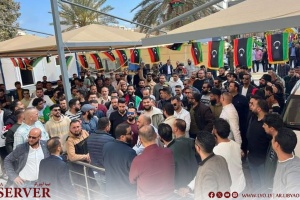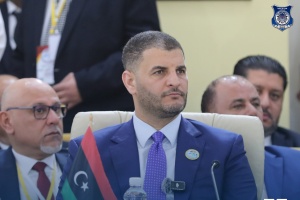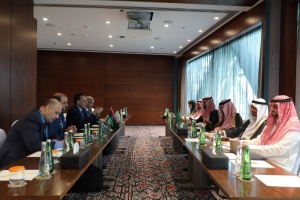The spokesman for Khalifa Haftar's forces, Ahmed Al-Mismari accused on Saudi channel Al-Arabiya Al-Hadath, which is based in the UAE, the Head of the Presidential Council Fayez Al-Sarraj and the Interior Minister Fathi Bashagha of "trading Libyan girls", claiming - in a desperate attempt to cover up for their massive military losses - that what he called Syrian and Turkish mercenaries were "given Libyan girls in Tripoli and Misrata with the blessing of military and political leaders."
The accusation is part of a series of claims and a broader intelligence work done by the UAE and Saudi Arabia against all their political opponents.
Al-Arabiya Al-Hadath TV fabricated earlier a call for "a Syrian mercenary fighter" asking a Libyan national to bring for him and his companions some Libyan girls from "Zintan and Misrata", which was seen by analysts as the same textbook behavior of the UAE and the anti-revolution camp that aimed at demonizing Misrata, in addition to newly adding Zintan as Haftar's forces want to have them on their side.
Meanwhile, officials from Haftar's forces, including Al-Mismari, and the Head of Moral Motivation Department Khalid Al-Mahjoub alleged earlier that "Syrian mercenaries" were doing physical search on Libyan women in Tripoli streets and that they were entering women's houses, calling on Tripoli residents to go on "a revolution for their honor".
This isn't something new for Haftar's forces media platforms as they have done the same before during Benghazi and Derna conflicts, spreading the same accusations, yet the intensified focus this time shows how Haftar's forces are in defeat after the retreat of Russian Wagner Group mercenaries, whose withdrawal caused Haftar massive losses that have been gained over several months.








